

Lost in myth: Understanding “What They Died For”
In the penultimate episode of Lost, “What They Died For,” Jacob tells the surviving Losties why he chose them as candidates: “I chose you because you were all alone. You were all looking for something that you couldn’t find out there. I chose you because you needed this place as much as it needed you.” This explanation really resonated with me, on one hand because it provided a mythologically sound answer to the main question I’ve always had about Lost: why do all these characters have major issues? And having that answer provided the other reason I really liked the explanation: I immediately understood that while Jacob was addressing the remaining candidates, he was really speaking to us.
In The Myth of Lost, I dedicate an entire chapter to the seemingly far-out idea that Lost is alive. After watching “What They Died For,” I feel more strongly than ever that it is. Obviously, I’m being a bit playful with that statement but the point is that the universe, or fate, God, the light, or whatever you believe, enabled certain life events to occur so that those who were meant to, would watch this show. Think about how you came to watch it. Doesn’t it almost seem as though Lost found you? Most people I’ve spoken to have an interesting anecdote about how they came to start watching. Lost selected us as its candidates. Speaking to viewers, I’ve come to discover a pattern among the most dedicated. We were all a little lost ourselves. While much of humanity is lost to some extent, especially these days, the difference with most fans is that we were actively looking for answers even before Lost hit the airwaves. Lost has given us answers to questions that most of us didn’t realize we had, the main one being, what are we doing here?
Whether we realize it or not, Lost has helped us uncover this answer. For some people, it has helped consciously, for other subconsciously, but either way, we are all a little bit wiser for having experienced this show. B.L. (Before Lost), many of us were looking for something more than this materialistic world could provide. I find it interesting just how intelligent, creative, and philosophical the fans of the show tend to be. Just like the characters, we have grown for having experienced the mysteries of the island. Yes, we will still have our challenges and issues, but maybe we won’t react so quickly this time when things don’t go our way. When we are confused, we may be more likely to stay open to clues that the universe may provide, and when people come into our life, we may be a bit better at identifying their archetype and figuring out what role they might play in our journey.
I don’t expect the challenges of life to get an easier for us from here on out. In fact, now that we are better able to handle them, they just might get tougher. But, it’s your tough life that made you the perfect candidate for Lost to begin with. As I mentioned in, “Lost In Myth: Why Lost Can be a Substitute for Willy Wonka,” “a hero is someone who suffers.” Actually, I’d like to update that theme a bit now. Yes, a hero always goes through challenges that are more trying than what the average Joe has to experience, but it is his or her choice to suffer. Suffering is a reaction. If we choose to look at these challenges as ways of helping us to grow past our issues, there’s less reason to get angry, sad, or bitter about them.
While it sucks at the time we are going through them, the challenges of life make us stronger. And those who have overcome enough challenges are able to become so strong (wise, confident, balanced), that they no longer need the fleeting pleasures of the material world to find happiness. They can find happiness within. And once you get to that place, you are untouchable from the outside because you’re always in touch with the inner spark inside you. And that inner spark will continue to grow to light your way. That’s when you become like Desmond who learned to control his destiny, or Neo once he saw the matrix for the illusion it really was, or Luke when he let go of his mind and trusted his feelings. That’s when you become who you really are. Very few of us ever get there. But something tells me that thanks to the wisdom of Lost, many more now will. Let go of your need for answers and just let yourself enjoy the end of your Lost journey.
For the most part, we already have all the answers we really need. While we may never know who was in the other outrigger that was shooting at Juliet, Sawyer and crew, or how the supply drops were still working after DHARMA was gone, or what the significance of the Hurley bird was, the truth is, none of that really mattered. Life has its mysteries that will never be known, but that’s part of what makes it interesting. I agree that the Lost writers shouldn’t have built up so much suspense for questions they never planned on answering, but just as Mother stated in “Across the Sea,” every question that gets answered will only lead to another question.
Let’s look at some of the questions that Lost didn’t directly answer but indirectly did.
The Polar Bears. Well, the one that Charlotte found had a collar around its neck. Is it possible that the purpose of the polar bears were to turn the donkey wheel in the frigid area where it existed? The polar bears could stand the cold, and since turning the wheel teleported the turner to Tunisia, using a bear instead of a person was a sacrifice that saved DHARMA from losing one of their members. The fact that Charlotte found the polar bear skeleton in Tunisia seems to confirm this idea.
Walt’s Powers. Since Lost has gone the full mythological route as a source for its answers, within that template it is perfectly acceptable for someone to have just been born with gifts. Perhaps Walt was born with more light inside him than most, perhaps Jacob visited him as a child to give him this gift. The thing is, once you are in the realm of mythology, everything is possible as long as it stays true to the myth being created and can act as a metaphor to qualities in our world. In our world, are certain people born with abilities that enable them to be more gifted than most? Sure. So Walt is an example of this in the Lost world. That being said, it would’ve been great if the writers could’ve explained Walt’s gifts using the mythological themes they created, enabling us to make more sense of this mystery in our world. It would’ve been great, but by not doing so, they have not taken away from their overall mythology, just left it up to us to decide.
Jacob’s cabin, the ash, and the apparition inside who whispered to Locke, “help me.” This was one I really wanted an answer to, and we still might get it, but really, all the pieces are in place to explain Jacob’s cabin. Why was it built? Well, in Locke’s dream, Horus says that he built the cabin as a getaway of sorts for him and his wife. Who was the apparition? Well, if we are never told, I guess we can assume that it was the Man In Black. Who put him there and put the circle of ash around it? My guess would be the group that Ilana and Bram belonged to. It seems like they were on the island some time in the mid-eighties — during that chunk of time that we haven’t really seen that much of. How did MIB get out of the cabin and appear like Christian before the circle of ash was broken? Well, who’s to say that it hadn’t been broken long before Locke first arrived there? Perhaps he was already able to leave but still used it as his home base. Incidentally, this explanation also explains Ilana and Bram’s connection to the island — either they were there before or they were visited by Jacob in their own lives. Again, the details don’t really matter.
I could go on with this but perhaps it’s better to wait for after the finale since we still have 2½ hours to get more answers. Using this same line of thinking though, it’s also possible to figure out what’s most likely going to happen in “The End.” Since Lost has remained true to its own mythology, it’s very possible to predict events. In “Lost In Myth: Unwrapping ‘The Package,'” I wrote that Desmond would likely turn out to be the failsafe, and therefore:
My guess is that just as Desmond destroyed the Swan station, he will somehow destroy the island, leading to it being underwater as we saw at the start of the season. Just as the Swan station had to be destroyed to prevent the energy pocket from destroying the island, now the island must be destroyed to prevent Smokey from destroying the world.
Widmore had said that Desmond would have to make a sacrifice for the island. We know that he can stand electromagnetism. We know that the “light” at the heart of the island is actually this same electromagnetism. So, putting two and two together it seems logical to conclude that Desmond will need to go down into the source of the light (led to by Jack) where he will absorb the energy and be able to fight Smokey. Having the opposite polarity of the black smoke monster (perhaps he will be a white smoke monster or light-being), once the two forces use their full powers against each other, it will cause a rift in time that will blow all the remaining Losties away to Kingdom Come and send the island back in times where it will finally sink. With the island destroyed and thrown back in time, it never existed in 2004. So all the influence it had is changed, creating the parallel timeline we’ve seen in the flash-sideways. However, since fate has a way of course correcting, certain things still need to come together. This is what Desmond is doing in the flash-sideways world. If he does not do these things, this timeline will not be stable and will collapse — see Donnie Darko for more on this concept.
Even though all this makes sense within the realm of Lost‘s mythology, I am still hoping for a twist that will give new meaning to everything we’ve seen in the show up until now. While I don’t need it to be fulfilled with the show, I do feel that some of the answers that it has given were rather pedestrian. I’ve vented before about the possibility of the whispers just being the voices of the ghosts, the smoke monster just being an evil entity, the numbers just being the random digits assigned to the candidates, and the island just being a cork. While it seems that these answers to the mysteries are all we’re ever going to get, often in stories, when puzzle pieces come together in a less-than-perfect way, there is another explanation to them all. (Think of Kevin Spacey’s character’s story in The Usual Suspects and the twist that followed, or the similarly hazy explanations in Memento and Fight Club until their respective twists.)
Since Carlton Cuse and Damon Lindelof are both fans of The Twilight Zone and other similar “things-are-not-as-they-appear” stories, I am hopeful that their Wizard of Oz and Alice In Wonderland allusions in Lost don’t turn out to simply be vague references to the root mythology of the show (the world-as-illusion myth). I think it would be so much more satisfying to have Lost end in a way that causes us to rethink all six seasons — inspiring us to go back and watch it again with new eyes to see if it all still works. That is, as long as that twist at the end is still within the realm of the show’s mythology. While I suspect that one of the spoof endings that will show up on Jimmy Kimmel Live! Sunday night will be a send-up of the ending of The Wizard of Oz, to have Lost actually end as a dream or hallucination would admittedly be a let down.
The world-as-illusion myth holds that the reality we live in is actually an illusion and that events that control it occur from the “real” world. No matter how Lost ends, this is the root mythology of the show. The flash-sideways has confirmed it. In that parallel timeline, the Losties are being influenced from another realm that exists beyond their own. The message for us is that the world we live in works similarly, and we too must play out roles that have been written from another realm. The goal is for us to overcome our challenges, just as the Losties were meant to do.
To touch a bit on some of the specific themes of “What They Died For,” I thought Alex’s comment about Ben looking like Napoleon with his arm tucked by his chest was quite telling. It’s interesting that Ben had been teaching his class about Elba — where Napoleon was exiled — in “Dr. Linus.” Commenting on that episode, I wrote that Ben was devising “intricate plans to suit his Napoleon-esque power-hungry ego.” Certainly, Ben has a
While Ben had good reason to kill Widmore, I wondered if that scene really was as it appeared. I was initially a bit confused when I watched that scene because I thought that Ben and Widmore couldn’t kill each other as per the rules. The question then, is whether Ben was actually saving Widmore from having to spill the beans to Smokie.
As satisfying as watching Ben shoot Widmore was, I think it would be much more so if it turns out to all be a ruse with Ben and an alive-and-well Widmore joining forces to save the day. But, maybe that’s just me. I guess I believe that everyone can return to the Light Side.
The other complex referenced in the episode was Sawyer’s funny quip about Jack having a God-complex before becoming a supernatural being with special powers. In fact, this may turn out to be another test for Jack. As we see from Jacob, even supernatural beings are not without their flaws. If God truly made us in His image, than logically He has His own Crap to deal with too. (I capitalized “crap” because God’s Crap would undoubtedly be holy.) So, will Jack’s God complex spiral out of control in “The End”? Will Ben’s Napoleon complex drive his thirst to rule the island? These are answers we will certainly be getting to in the very next episode.
One other mythological theme that I was reminded of in this episode was when Widmore told Zoe not to speak to Smokey, after which, Smokey slit her throat since her existence was now “pointless” for him. There are many, many ways to interpret this short exchange, but I’ll go with the first thought I had. What if Dogen telling Sayid not to let Smokey talk to him had nothing to do with whether or not he actually did? What if simply telling him this rendered Smokey powerless to fully manipulate him?
This idea is similar to vampire myths, though, in the reverse. In The Lost Boys, Cory Haim and the gang invite a suspected vampire into their home to prove their theory. Despite serving him garlic and thrusting a mirror in his face hoping to not see his reflection, the boys tactics turn out to yield no results. That is, until they later learn the truth as Max, the head vampire later reveals to them, “Don’t ever invite a vampire into your house you silly boy! It renders you powerless!” Similarly, perhaps being told not to speak to Smokie (or have him not speak to you), renders him powerless to use his powers over you, and therefore, useless. Either that, or Smokie was just demonstrating that he wasn’t going to take Widmore’s B.S.
In last week’s discussion, I mentioned that our world might have been created because in the real world, there is no choice. If everything is one, and all is known, where’s the fun in that? Perhaps our world and the illusion of time were born in order to give ethereal beings an experience they couldn’t have — the ability to not know how something might turn out, and therefore, the ability to choose a possible outcome. Jacob confirmed this interpretation as far as Lost‘s mythology is concerned when he told the candidates that he wanted them to have the one thing he never could — a choice. So is he a metaphor for God, with the Losties being us, and the island being this world? That’s the message I got. For you, there may be a more appropriate truth. That’s the great thing about mythology: it can work on so many different levels for so many different people. What’s right for me may not be right for you, and vice-versa.
I see the DHARMA incident as a perfect parallel for the BP oil debacle that has caused an epic environmental catastrophe in our ocean. I see it as a confirmation that Lost is giving us real-world wisdom. I see it as a warning that if we act the same way as the irresponsible and selfish characters on the show, we will reap the same repercussions in our world (the uncorking of the black smoke from a volcano or black oil from a poorly-planned off-shore drilling). However, you may believe that I am mistaking coincidence for fate. Who’s right? We both are, because we’ve both had different life experiences.
As Lost teaches, there ultimately is no right or wrong, only what is true to who you are. So if you are a man of science, believing that the oil gusher has nothing to do with events from a TV show is completely logical. As a man of faith though, it is within my realm of believability to believe that there is a connection. (And apparently I’m not the only one as I just discovered. Search “cork” here.) Either way, to accept only those beliefs that are in line with who we already are is not really an experience that helps us to grow. Only when we stay open to others’ thoughts and opinions, even when they contradict our own, do we give enough room to expand our horizons. This is why, of all the characters on Lost, Jack has grown the most. Not only did he get over his own issues, but he also abandoned his own beliefs. Once he did so, there was no point in him returning to his old life — unless he could be a man of science with faith. Tune in to the exciting Lost spin off, Dr. Shephard Medicine Man! Coming next fall to ABC!
Yes, I thought I’d end this week’s column with a little levity. We all have such high expectations going into the finale. As I wrote above, let them go. Just enjoy the conclusion of what has been a very enlightening journey. It only ends once, but everything we’ve experienced in getting there has been progress.
Marc Oromaner is a New York City writer whose book, The Myth of Lost offers a simple solution to Lost and uncovers its hidden insight into the mysteries of life. He can be contacted in the discussion section of The Myth of Lost Facebook page or on his new blog The Layman’s Answers to Everything. The Myth of Lost is available on Amazon and barnesandnoble.com.
Latest posts by Marc Oromaner (Posts)
- The long lost instruction book to the game of life - June 24, 2014
- Warning: Spirituality can be hazardous to your health & wealth - April 17, 2014
- Was 2012 an epic fail? - December 30, 2013
- 5 steps to uncover your destiny - September 20, 2013
- Evolution has been in The Bible all along - August 18, 2013
 Print This Post
Print This Post

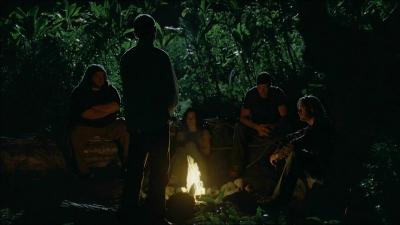
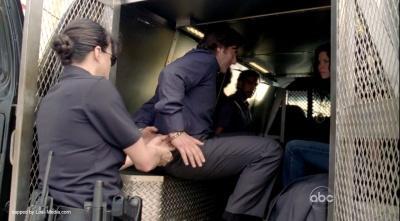
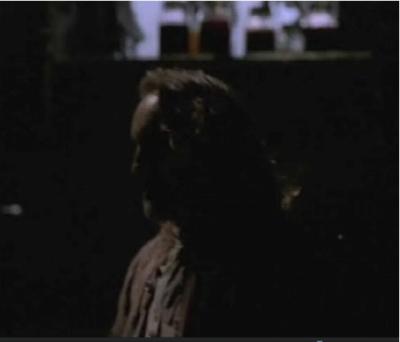
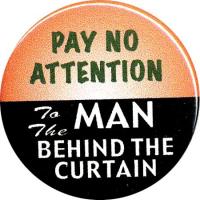
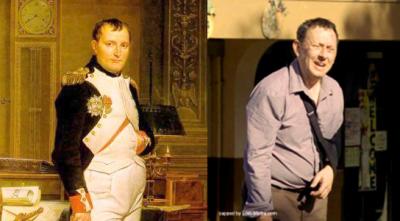
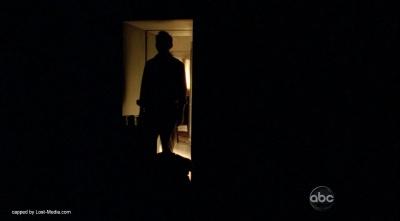
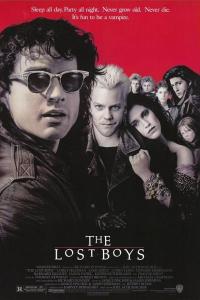




Discussion Area - Leave a Comment